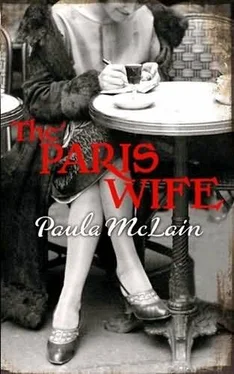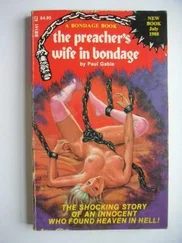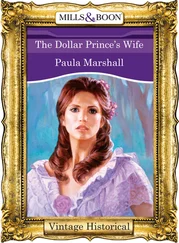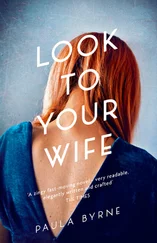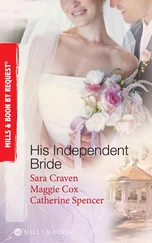Ernest sent a brutal reply back, sacrificing the friendship as if it meant nothing. I knew he was hurting over the loss and his own mistakes, but he wouldn’t admit it. His mood was pretty low during this time. He’d gotten several more rejections on stories he’d sent to magazines, and it hurt his pride. It was one thing when he was writing part-time and having no success. But now he was devoted to his craft, working every day, and still failing. What did that mean for the future?
Certainly there’d been moments in our courtship when Ernest’s spirits flagged and he got down on himself. A dark letter from him could seem pretty ominous, but then a few days would pass and his tone would grow more buoyant and positive. Seeing his mood turn at close range was more trying. In fact, the first time, which came shortly after we were married, disturbed me more than I could comfortably confess.
He’d come home from working in a coffee shop one day looking simply terrible. His face was flat and drawn; his eyes were pink with exhaustion. I thought he might be ill, but he shrugged off this concern. “I’ve just been too much in my head. Why don’t we take a walk?”
It was November and quite chilly, but we bundled up and trudged along for a good while, moving toward the lake. Ernest was quiet and I didn’t force the issue. By the time we reached the shore, it was growing dark and the water was rough with chop. Still we could see some brave or stupid soul, maybe half a mile out, in a small rowboat that tipped ominously, taking in water.
“What would Darwin think of this rube?” Ernest said, cracking a wry smile.
“Aha,” I said. “I was worried I wouldn’t see those lovely teeth at all.”
“I’m sorry. I don’t know what’s wrong with me.” He put his head in his hands and sighed. “Goddamn it,” he whispered fiercely, and then struck his forehead sharply with his fists.
“Ernest!” I said, and then he did it again.
He began to cry, or at least I think he was crying; he hid his face in his hands.
“Please tell me what’s wrong,” I said. “You can tell me anything.”
“I don’t even know. I’m a wreck. I didn’t sleep at all last night.”
“Are you having regrets about getting married?” I tried to meet his eyes. “If you are, I can take it.”
“I don’t know. I’m just so lost.” He rubbed his eyes hard against the sleeves of his wool jacket. “I have these nightmares and they’re so real. I can hear mortar fire, feel the blood in my shoes. I wake up in a sweat. I’m afraid to sleep.”
I felt a wave of maternal love for him, wanting to wrap him tightly in my arms until the cold feeling in his heart went away. “Let’s go home,” I said.
We walked back to our apartment in silence. When we got there, I steered Ernest straight to the bedroom and undressed him the way my mother always did for me when I was sick. I pulled the blankets tightly around his shoulders, and then rubbed his shoulders and arms. After several minutes, he fell asleep. I found a blanket and went to a corner chair to watch over him. It was only then that I let myself feel the whole weight of my own anxiety. So lost , he’d said, and I could see it in his eyes, which reminded me of my father’s. What did it all mean? Was this crisis related to his experiences in the war? Did those memories descend to plague him from time to time, or was this more personal? Did this sadness belong to Ernest in the fatal way my father’s belonged to him?
From across the room, Ernest made a small animal noise and turned to face the wall. I pulled my blanket more tightly around my shoulders and looked out our bedroom window at the stormy November sky. It had started to rain hard, and I hoped that poor soul in the rowboat had found his way to shore. But not everyone out in a storm wants to be saved. I knew that myself from the summer Dorothea died. My summer friend and I had made it safely out of Ipswich Bay, but that was happenstance. If the raging waters had reached out to swallow me, I would have let them. I wanted to die that day-I did-and there’d been other times, too. Not many, but they were there, and as I watched Ernest twitch in an uneasy sleep, I couldn’t help wondering if we all had them. And if so, if we survived them, was it by chance alone?
Hours later, Ernest woke up and called out for me through the darkened room.
“I’m here,” I said, going to him.
“I’m so sorry,” he said. “I get like this sometimes, but I don’t want you to think you’re getting a bum horse in the deal.”
“What sets it off?”
He shrugged. “I don’t know, it just comes.”
I lay down quietly next to him and stroked his forehead lightly as he talked.
“When I got shot up, I had it pretty rough for a while. If it was daytime and I was doing something, fishing or working, anything, I was okay. Or at night, if I had a light on and could think about something else until I fell asleep. If I could name all the rivers I’d ever seen. Or I’d map out a city I’d lived in before, and try to remember all the streets and the good bars and people I met there and things they’d said. But other times it was too dark and too quiet, and I’d start to remember things I didn’t want in my head at all. Do you know how that is?”
“I do a little, yes.” I held him tightly. “It scares me, though. I never knew my father was so unhappy, but then he was gone. It all got to be too much for him.” I paused, trying to get this part right. “Do you think you’ll know when it’s too much for you? Before it’s too late, I mean.”
“Do you want a promise?”
“Can you?”
“I think so. I can try.”
How unbelievably naïve we both were that night. We clung hard to each other, making vows we couldn’t keep and should never have spoken aloud. That’s how love is sometimes. I already loved him more than I’d ever loved anything or anyone. I knew he needed me absolutely, and I wanted him to go on needing me forever.
I tried to be strong for Ernest’s sake, but things weren’t easy for me in Chicago. His preoccupation with his work made me sharply aware that I had no passion of my own. I still practiced at the piano because I always had, but it was a rented upright, not the graceful Steinway of my childhood, and the draftiness of the apartment wreaked havoc on the tuning. Because I no longer had any friends in Chicago, there were whole weeks when I didn’t talk to anyone but Ernest and Mr. Minello, the grocer down the street. Every afternoon, I’d walk the three blocks to the market and sit and chat with him. Sometimes he’d make us a cup of tea-a strong leaf that tasted of mushroom and ashes-and we’d chat like fishwives. He was a widower, a sweet man who knew a lonely woman when he saw one.
It was Mr. Minello who helped me plan my first dinner party as a married woman, for Sherwood Anderson and his wife, Tennessee. Kenley had introduced Ernest to Anderson in the spring, before their falling-out. Winesburg, Ohio was still fairly big news, and Ernest could hardly believe Anderson would meet with him, let alone ask to see some of his stories. Anderson had seen promise in Ernest’s work and offered to help launch his career if he could, but he and Tennessee had promptly left the States after that, for a long European tour. They were just back in town when Ernest sought him out and invited the couple over to dinner. I was excited to meet them but also panicked. Our flat was so terrible, how could I possibly manage to pull it off?
“Low light,” Mr. Minello said, trying to calm my nerves. “Spare the candles but not the wine. And serve something in a cream sauce.”
I wasn’t much of a cook, but the evening went off smoothly anyway. Anderson and his wife both had perfect manners and pretended not to notice how awful our living situation was. I liked them both immediately, particularly Anderson, who had an interesting face. Sometimes it seemed blank and completely without feature-squishy and ordinary and mid-western. At other times he had a kind of dramatic intensity that lent everything a lovely hardness and charge. He was just short of magnificent when he began to talk about Paris over dinner.
Читать дальше
